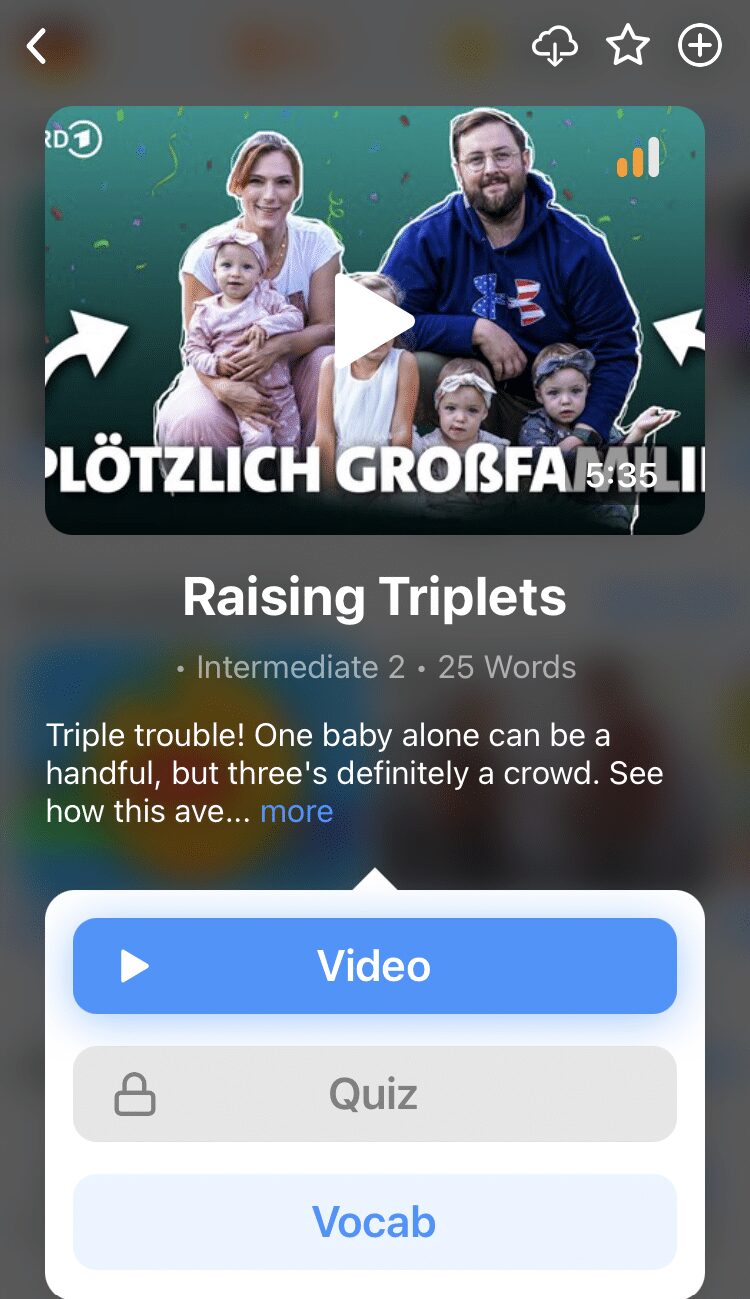The Genitive Case in German

It’s highly possible that in the course of your German studies, you haven’t yet learned the possessive case, also known as der Genitiv .
Thankfully, Genitiv is fairly easy and a lot less common than Nominativ, Akkusativ and Dativ. Read through our guide to all things Genitiv, and you’ll be able to use this case in no time.
Download: This blog post is available as a convenient and portable PDF that you can take anywhere. Click here to get a copy. (Download)
Things to Know About the German Genitive
This section will act as your guide to the Genitiv case. When you practice the five uses of the Genitiv case, refer back to this section to remember the proper grammatical points.
The genitive pronouns
| Gender | Genitive Pronouns |
|---|---|
| Masculine | des (definite), eines (indefinite) |
| Feminine | der , einer |
| Neutral | des , eines |
The genitive adjective endings
Good news! The genitive adjective endings are almost exactly the same as the dative adjective endings. Almost all adjectives in the genitive case end in -en.
The only exceptions are when there is no article preceding the noun. Articles are words like “the”, “this”, “no” or “a”. Where no article is to be found, adjectives before feminine or plural nouns take the ending -er.
The vast majority of cases for this are for phrases indicating the quantity of something. Let’s look at an example with the singular feminine noun Kleidung (clothing):
Der Großteil gebrauchter Kleidung landet auf Deponien. (The majority of used clothing ends up in landfill.)
And now with the plural noun Produkte (products):
Wir bieten eine große Auswahl leckerer Produkte. (We offer a range of tasty products.
So apart from those two cases, it’s always -en! We told you this case was fairly easy!
The genitive noun endings
Okay, this news is slightly less good. In the genitive case, you have to change nouns as well as adjectives. But don’t panic! Only neuter and masculine nouns change their forms in genitive, and almost all of them simply take an -s or an -es for the ending.
Shorter, singular syllable nouns tend to take the longer –es ending, whereas longer words with more syllables usually just gain an -s on the end:
Der Mann (the man) ⇒ Des Mannes
Der Wagen (the car) ⇒ Des Wagens
Nouns known as “weak masculine nouns” don’t take an -s or -es ending, as these always end on -en in all cases apart from the nominative:
Der Mensch ⇒ Des Menschen (the people)
There are luckily only two exceptions that have unique endings in the genitive:
Das Herz (the heart) ⇒ Des Herzen
Der Name (the name)⇒ Des Namens
The fact that the genitive case is falling out of use
Remember when I said earlier that the genitive case isn’t as common as the other cases? Well, one of the reasons behind this rarity is that genitive is slowly but surely disappearing from the German language. It’s much less common to hear genitive now than it once was. When you do encounter genitive, you’re much more likely to read it instead of hear it.
However, this case isn’t obsolete by any means, and so knowing how to identify and use this case is an essential part of your German language education.
Uses of the German Genitive Case
Although genitive isn’t as common anymore, it’s still used in several different, important contexts:
| Uses of the Genitive Case | Examples |
|---|---|
| Possession | Die Hunde der Nachbarn (The neighbor's dogs) |
| With certain prepositions | Trotz des Lärms konnte ich gut schlafen.
(Despite the noise, I could sleep well.) |
| With certain verbs | Er bedarf deines Rates.
(He needs your advice.) |
| Indefinite time | Eines Abends ging ich alleine spazieren.
(One evening, I went for a walk alone.) |
Read on to become adept at using the genitive case every way it can be used!
1. Possession
This is the most common and well-known use of the genitive—to say to whom something belongs. For example:
Das Haus meiner Tante (Literally: “The house of my aunt” / My aunt’s house)
How do you use German genitive case to show possession?
To show possession with the German genitive case, start with the object that’s being possessed. Say it’s a gift, das Geschenk .
Then figure out who’s doing the possessing. Say it’s your boyfriend you’re talking about, mein Freund (my boyfriend).
So you would want to say the equivalent of “The gift of my boyfriend,” which is:
Examples:
Das Haar der Frau. (Literally: “The hair of the woman” / The woman’s hair)
Das Auto der Eltern meiner Freundin. (Literally: “The car of the parents of my girlfriend” / My girlfriend’s parents’ car)
Die Tasche seiner Mutter. (Literally: “The bag of his mother” / His mother’s bag)
Note: With names, the possessive in German can also be simply expressed with an s, the way it is in English, but beware: Don’t use an apostrophe the way you do in English! Some Germans have started using an apostrophe, but it’s considered poor form.
So you would say Marias Auto (Maria’s car), not Maria’s Auto.
2. With certain prepositions
If you’ve figured out how to express possession using genitive, congratulations. You’ve already cracked the main function of this elusive case.
However, don’t get too complacent. There are still a few more uses to learn. Next up, the prepositions that take genitive.
How do you use the genitive case with certain prepositions?
There are a handful of prepositions that take this case. Here’s a list of the most common:
| German Preposition | Meaning |
|---|---|
| Während | During |
| Außerhalb | Outside of |
| Aufgrund | Because of |
| Trotz | In spite of |
| Wegen | Because of |
| Innerhalb | Within |
So how do you use these prepositions along with the genitive? The article and object following each preposition takes the genitive. Take a look at the examples below and you’ll quickly have a good idea of how to form these.
Examples:
Während des Konzerts hat meine Mutter mich angerufen. (During the concert, my mother called me).
Aufgrund des Regens bleiben wir heute zu Hause. (Because of the rain, we’re staying home today.
Trotz ihrer Müdigkeit hat sie bis Mitternacht gearbeitet. (Despite her tiredness, she worked until midnight.
To get more familiar with German prepositions as well as the genitive case, you can study how they’re used by native speakers in different situations on FluentU.
FluentU takes authentic videos—like music videos, movie trailers, news and inspiring talks—and turns them into personalized language learning lessons.
You can try FluentU for free for 2 weeks. Check out the website or download the iOS app or Android app.
P.S. Click here to take advantage of our current sale! (Expires at the end of this month.)
3. With certain verbs
This is a fairly uncommon use of the genitive. Once upon a time, plenty of German verbs used genitive, but over the years more and more verbs have switched over to the Dativ. Genitive constructions with verbs sometimes sound quite archaic and formal, but they’re still sometimes used, so you should at least be aware of them.
How do you use the genitive case with certain verbs?
Remember, only a handful of verbs still take genitive. A few of the more common ones are:
| Verb | Meaning |
|---|---|
| Bedürfen | To require, to need |
| Gedenken | To commemorate |
| Harren | To await |
| Sich bedienen | To make use of, to resort to |
To form constructions with these verbs, the object of the sentence takes the genitive.
Examples:
Wir gedenken der Opfer des tragischen Unglücks. (We commemorate the victims of the tragic accident.)
Die Geschäftsfrau bedient sich ihrer guten Beziehungen. (The businesswoman makes use of her good connections.)
Es bedarf keiner weiteren Erklärungen mehr. (No further explanation is needed.)
4. Indefinite time
Ready for the last use of genitive? This case can also be used to show periods of indefinite time.
How do you use genitive case to show indefinite time?
First, it’s important to understand the English translations of these expressions of indefinite time. For example, the German equivalent of “someday” and “one day” both take the genitive case.
Be sure that you don’t use genitive with expressions of indefinite time governed by adverbs, such as manchmal (sometimes) or with expressions of indefinite time that follow a preposition.
Examples:
Ich hoffe, wir sehen uns eines Tages wieder. (I hope we see each other again some day.)
5. Not at all
Have you gotten to know all the uses and examples in steps one through four? Are you a genitive expert now? Good. All right, now I have to remind you of something from the beginning of this post, which is that…
The genitive is disappearing from German.
Yes, genitive is slowly but surely disappearing into the realm of formal writing, while spoken German relies increasingly on English-inspired, informal forms. But before you throw all your genitive notes out the window, remember: This form is still used, and it’s important to know if you want to identify yourself as a serious German speaker. It’s just also important to learn the ways that Germans are replacing genitive with other forms.
In what circumstances are other forms replacing genitive?
Remember how Das Auto meines Vaters translates to “the car of my brother”? Increasingly, Germans are reforming this sentence to include the word “of” in German as well.
Nowadays, many Germans would express this sentence by saying Das Auto von meinem Vater (the auto of my father).
But, since von takes Dativ, that means the Genitiv in this sentence is no more.
Examples:
Das Blatt des Baums (the leaf of the tree) becomes Das Blatt von dem Baum (the leaf of the tree).
Der Tisch der Küche (the table of the kitchen) becomes Der Tisch von der Küche (the table from the kitchen).
Genitiv may seem like a niche area of German grammar, and in some ways it is.
It’s still essential to learn if you want to ascend through the intermediate levels and emerge speaking confidently and fluently.
So, study our guide and get comfortable with using the genitiv case!
Download: This blog post is available as a convenient and portable PDF that you can take anywhere. Click here to get a copy. (Download)
And One More Thing...
Want to know the key to learning German effectively?
It's using the right content and tools, like FluentU has to offer! Browse hundreds of videos, take endless quizzes and master the German language faster than you've ever imagine!
Watching a fun video, but having trouble understanding it? FluentU brings native videos within reach with interactive subtitles.
You can tap on any word to look it up instantly. Every definition has examples that have been written to help you understand how the word is used. If you see an interesting word you don't know, you can add it to a vocabulary list.
And FluentU isn't just for watching videos. It's a complete platform for learning. It's designed to effectively teach you all the vocabulary from any video. Swipe left or right to see more examples of the word you're on.
The best part is that FluentU keeps track of the vocabulary that you're learning, and gives you extra practice with difficult words. It'll even remind you when it’s time to review what you’ve learned.
Start using the FluentU website on your computer or tablet or, better yet, download the FluentU app from the iTunes or Google Play store. Click here to take advantage of our current sale! (Expires at the end of this month.)












